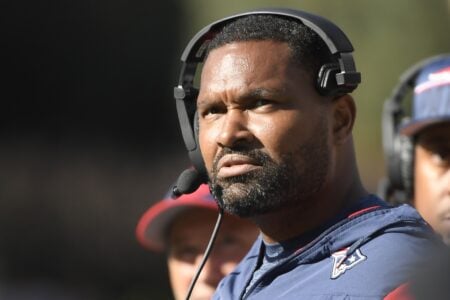3) A 'low yard' defense is equally likely to allow more yards in a playoff game as a 'high takeaway' defense is to get fewer takeaways.
I looked at every game in last year's playoffs. Counting each game each team played as one game (i.e., NE plays the Jets...that counts as one game for each team, and thus two total games played), here's what transpired:
# of times a team allowed fewer yards than their season average: 10 (45.5%)
# of times a team allowed more yards than their season average: 12 (54.5%)
# of times a team caused fewer turnovers than their season average: 14 (63.6%)
# of times a team caused more turnovers than their season average: 8 (36.4%)
Relatively small sample (though it was 22 games), but from this data pool, teams were more likely (63.6% vs. 54.5%) to cause fewer turnovers than they were to give up more yards.
Now, let's look further at your more specific premise, that "low yard" defenses are just as likely to give up more yards than "high turnover" defenses are to give up fewer turnovers.
Let's call a "low yard" and "high turnover" defense as anything ranked in the top 8 (top 25%) in the league. Here are the "low yard" teams: Pit (#2), NYJ (#3), NO (#4), and GB (#5). Here are the "high turnover" teams: NE (#2), Chi (#3), Pit (#3), Phi (#5), GB (#6), and Chi (#7). Now, let's run the same numbers as above, just looking at these teams. There were 11 "low yard" games, and 12 "high turnover" games.
# of times a low-yard team allowed fewer yards than their season average: 4 (36.4%)
# of times a low-yard team allowed more yards than their season average: 7 (63.6%)
# of times a high-turnover team caused fewer turnovers than their season average: 8 (66.7%)
# of times a high-turnover team caused more turnovers than their season average: 4 (33.3%)
Again, smaller sample, but same result: high turnover teams were more likely to have fewer turnovers in a playoff game (63.6%) than low yard teams were to allow more yards in a playoff game (66.7%).
Small amount of data, I know. Maybe at some point I'll do this over a 4-5 year period to account for more data, but the numbers, just from last year anyway, support my claim.


















